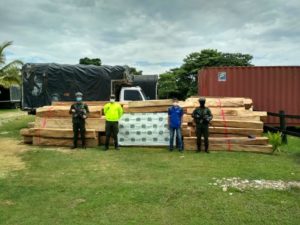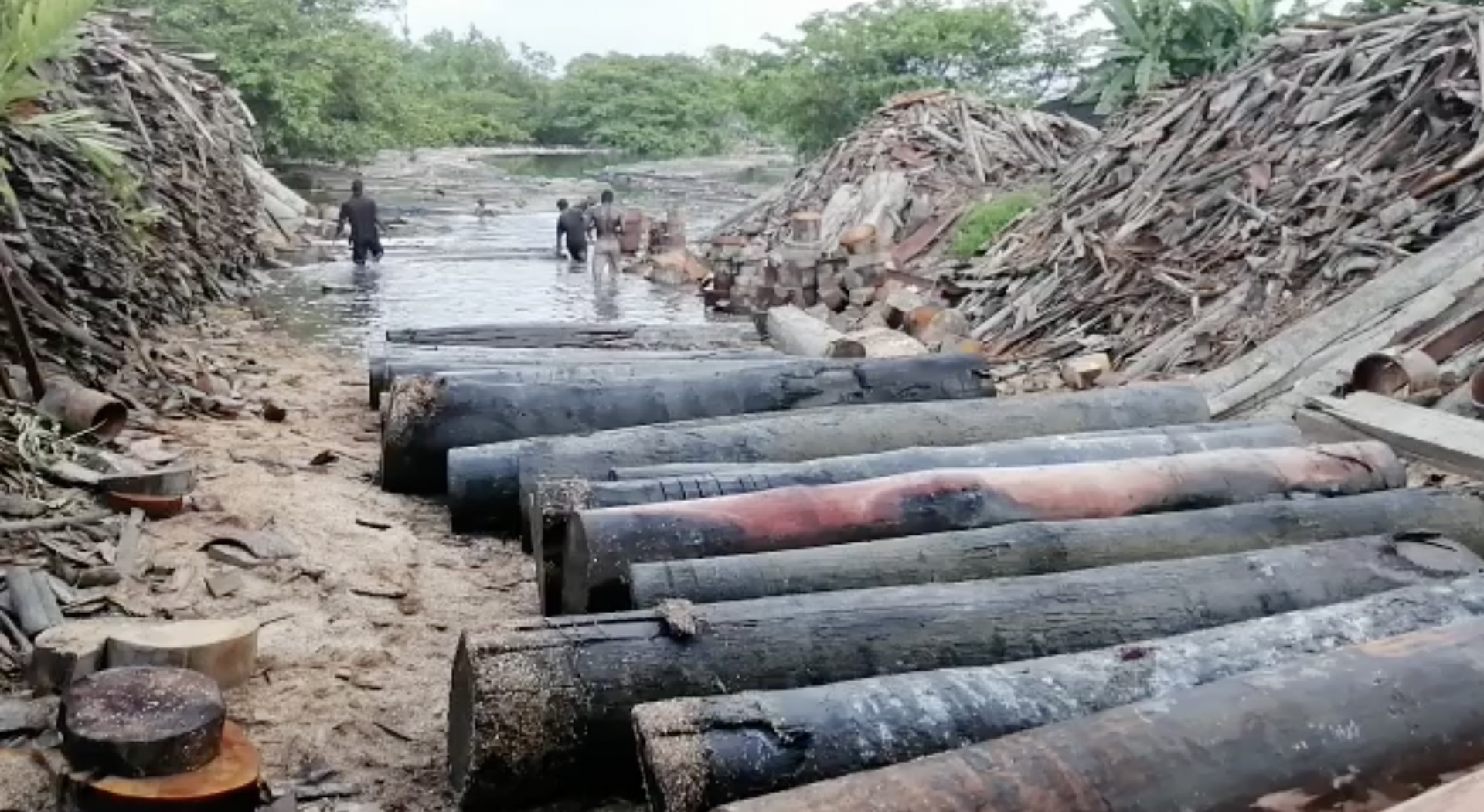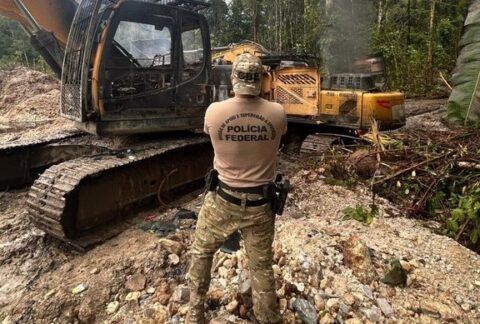Security forces of Latin America and the Caribbean recovered more than 80 shipments of illegal timber through international monitoring and cooperation as part of Operation Arcadia, Interpol said in April.
“When we talk about Operation Arcadia we are not only talking about the tangible, such as captures, seizures of timber, dismantling of structures, but […] the modus operandi that we identify and make known through Interpol to the 195 member countries,” Colombian National Police Major Leonardo Correa, deputy chief of the Criminal Investigation Section of the Carabineros and Environmental Protection Directorate, told Diálogo on May 19.
The more than 1,200 cubic meters of illegal timber recovered from forests in the hemisphere “mobilized police, customs, and forestry authorities from 12 countries in the region to uncover and disrupt illicit timber trafficking and related crimes,” the Interpol statement said.

During the month-long operation, authorities arrested 69 people and recorded 287 incidents related to illegal logging. Authorities worked in priority areas based on intelligence, identifying and neutralizing organized crime groups involved in timber trafficking, Interpol said.
Latin American jungles
Latin America and the Caribbean are home to a third of the world’s tropical forests, according to the Inter-American Development Bank (IDB). Between 2015 and 2020 South America lost almost 3 million hectares of forest per year, the second highest for any region in the world, the IDB said.
Latin America’s forests are being cleared at an accelerating rate. Brazil, Bolivia, Colombia, Ecuador, and Peru are among the nations with the greatest loss of forest, InSight Crime, an international organization that studies organized crime in Latin America and the Caribbean, said. Panama has seen an “alarming amount” of illegal timber seizures over the years, mostly bound for China, the organization added.
Interpol estimates that the illegal timber trade moves some $152 billion annually, representing almost half of the illegal profits from environmental crime, which is the third most prevalent form of transnational organized crime on the planet, InSight Crime indicated.
Complex networks
Organized crime groups are increasingly engaged in illegal logging and timber trafficking due to “the operational difficulty of heliport and riverine operations to reach and protect areas of difficult access in remote jungle zones,” among other reasons, Maj. Correa said.
The high worldwide demand for timber increases the risk of criminal groups becoming more involved in this illegal activity and using the profit margins to finance other illicit activities, Interpol said. The demand also leads to an increase in related crimes such as fraud, money laundering, and corruption.
“Today’s timber traffickers use modern logistics and financial systems that are not confined to one country or region,” Cindy Buckley, assistant director of Illicit Markets at Interpol, said. “The complexity of these schemes mean that it is only through multi-agency efforts along the supply chain and at international level that law enforcement can have a meaningful impact.”
The Colombia case
In this respect, “with the United States we have […] deep, strong […] and fundamental, partnerships for the work we carry out,” Maj. Correa said. “One of the partnerships is with the U.S. Fish and Wildlife Service [FWS],” to conserve habitats, priority species, and ecological processes in high biodiversity value areas.
“The partnership with FWS is geared toward financial assistance to equip security forces with some elements, train officials on environmental issues, and information exchange with U.S. authorities,” he added.
In addition, the Intersectoral Pact for Legal Timber in Colombia seeks to continue with the development of a sustainable legal timber market in the country by 2030, in order to confront illegal timber trafficking. This is one of the most recognized forest governance initiatives in Latin America, according to the World Wildlife Fund (WWF), a global conservation organization.
What’s next
To prevent criminal organizations from continuing to take timber from prohibited areas, “what is coming in the next few months are binational operations at the regional level in a coordinated manner,” said Maj. Correa. “Next month [June] we have a meeting with Brazil and Peru to begin planning operations, which is with whom we have the greatest alliance and environmental problem since we share that lung that is the Amazon.”
However, “we’re not doing anything stopping crime if we do not strengthen education on environmental issues for our children and adolescents. This will be our natural capital defense in the future,” Maj. Correa concluded.









